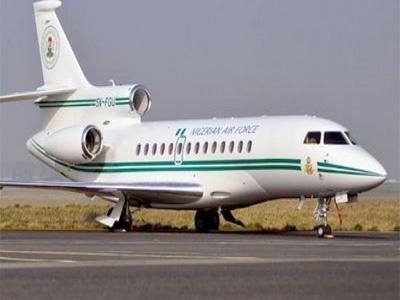


Presidential air fleet maintenance: Profligacy amid austerity
As Nigeria grapples with economic challenges, the Federal Government’s priorities are once again called into question. Under President Bola Tinubu’s administration, State house report showed that a staggering N14.77 billion has been spent on repairing and maintaining the presidential air fleet in just 11 months.
This extravagance is particularly galling when considered against the backdrop of a proposed $623.4 million expenditure on two new aircraft, as recommended by the House of Representatives Committee on National Security and Intelligence.
The justification for this lavish spending? The committee cites the “fragile structure of the Nigerian federation” and the need for a “suitable, comfortable and safe carrier” for the President and Vice President.
One wonders if our leaders have lost touch with the realities faced by ordinary Nigerians, who struggle to make ends meet amidst rising poverty and inequality.
This is not an isolated incident. The previous administration, under President Muhammadu Buhari, spent a whopping sum of money despite promises to reduce the size of the fleet and cut costs. It appears that our leaders are more concerned with projecting an image of grandeur than with prudent fiscal management.
The proposal to procure two new aircraft by the National Assembly should be reconsidered, with a refocus on allocating resources to sectors that directly benefit the nation. It’s time to move away from extravagant spending.
Recent concerns about the state of the presidential air fleet highlight ongoing challenges despite significant past investments. These issues have led President Tinubu to resort to chartering private jets and Vice President Shettima to cancel international engagements.
On May 6, 2024, Shettima had to cancel his attendance at the 2024 US-Africa Business Summit due to a technical issue with his official aircraft.
Similarly, the President himself had to opt for a commercial flight to Saudi Arabia after his primary luxury jet required rehabilitation, and another aircraft he was using developed mechanical problems in The Netherlands.
Currently, the Presidency operates a fleet comprising six aircraft: a Boeing 737, a Gulfstream G550, a Gulfstream GV, two Falcon 7Xs, and a Challenger CL605. Additionally, there are six helicopters in service—two Agusta 139s and four Agusta 189s.
Given these operational challenges and the financial implications of maintaining such a fleet, it’s important to reassess spending priorities.
We implore that the focus should be on prudent fiscal management and directing resources where they can have the most meaningful impact on national development
During President Buhari’s eight-year tenure, the operation and maintenance of the Presidential Air Fleet (PAF) incurred a substantial cost of N62.47 billion. Despite his initial pledge to downsize the fleet as part of cost-cutting measures, government records indicate that this promise was not upheld.
The budgetary allocations for the PAF provide a clear insight into the financial commitment over the years. In 2016, N3.65 billion was earmarked, which increased to N4.37 billion in 2017.
The following years saw significant rises, nearly doubling to N7.26 billion in 2018 and N7.30 billion in 2019. A minor decrease to N6.79 billion occurred in 2020, followed by a substantial surge to N12.55 billion in 2021 and N12.48 billion in 2022, before moderating to N8.07 billion in 2023.
In contrast, President Tinubu’s administration, since assuming office, has taken a different financial approach. Recent reports from GovSpend, a civic tech platform monitoring government expenditures, revealed disbursements totaling N14.77 billion within a single year.
This expenditure, distinct from travel costs incurred by top officials domestically and abroad, underscores a renewed financial commitment to maintaining the presidential air fleet.
The debate surrounding the necessity of acquiring two additional aircraft has sparked considerable dissent among political parties.
The Labour Party and the New Nigeria People’s Party have openly challenged the federal government’s rationale, questioning the timing and fiscal prudence of such a significant investment amidst ongoing economic challenges faced by Nigerians.
Peter Obi, Labour Party’s presidential candidate, criticised the move as untimely, emphasising the economic hardships inflicted by current government policies on the populace.
Similarly, the New Nigeria People’s Party expressed scepticism, accusing the ruling party of insensitivity to public sentiments.
As discussions continue, the focus remains on balancing governmental responsibilities with prudent financial management.
The decisions made regarding the presidential air fleet will undoubtedly shape perceptions of fiscal responsibility and government priorities in the eyes of the Nigerian public.



